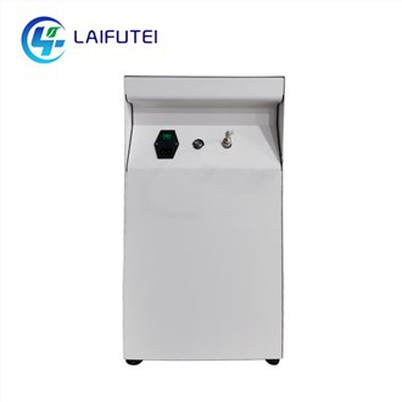What Does ICU Mean in Veterinary Terms?
Leave a message
What is ICU?
Intensive Care Unit or ICU is a specialized area in veterinary medicine where critically ill or injured animals receive round-the-clock care. The ICU is equipped with advanced medical equipment and staffed by a team of highly skilled veterinary professionals who provide advanced monitoring, support, and treatments to stabilize and improve the condition of critically ill or injured animals.
Importance of ICU in Veterinary Medicine
Animals that require emergency care due to injury, trauma, surgery, or illness often need intensive medical attention to recover. ICU is a crucial space for animals in critical condition, as it provides continuous observation, medical interventions, and life-support treatments. The main goal of ICU veterinarians and staff is to stabilize patients'' bodily functions, prevent secondary complications, and support the body''s natural healing processes as much as possible.
Facilities in ICU
ICUs are equipped with sophisticated medical equipment, including oxygen therapy facemasks, ventilators, blood pressure monitors, ECG machines, pulse oximeters, and fluid therapy systems. ICU rooms are also climate-controlled to maintain a stable environment for the patients. The layout is usually optimized to provide easy access to all the necessary equipment while allowing ample space for veterinarians and staff to work around the patients comfortably.
Staff in ICU
The critical care team in an ICU comprises veterinary specialists, technicians, and support staff. The team works together to care for critically ill patients by performing tests, interpreting results, administering medication, monitoring vital signs, performing emergency procedures and surgeries, and providing support to the patients'' owners.
Conditions Treated in ICU
ICU veterinarians and staff are trained and experienced in caring for patients with a wide range of critical conditions, including but not limited to:
1. Cardiovascular diseases: Acute myocardial infarction, congestive heart failure, arrhythmias, etc.
2. Respiratory diseases: Bronchitis, pneumonia, asthma, lung injury, etc.
3. Trauma: Road accidents, falls, fractures, head injury, etc.
4. Neurological disorders: Seizures, brain trauma, etc.
5. Gastrointestinal diseases: Gastroenteritis, intestinal blockage, pancreatitis, etc.
6. Infectious diseases: Septicemia, tick-borne diseases, fungal infections, etc.
7. Poisoning: Toxins, venom, medication overdose, etc.
8. Endocrine disorders: Diabetes, adrenal gland diseases, etc.
Treatments in ICU
Patients in ICU require customized treatment plans based on their condition and response to treatments. The treatments provided in the ICU may include:
1. Oxygen therapy: For animals with respiratory distress or impaired oxygenation.
2. Medication: Antibiotics, painkillers, anti-inflammatory drugs, sedatives, etc.
3. Fluid therapy: To maintain correct fluid balance and prevent dehydration.
4. Nutritional support: Patients may require feeding tubes or parenteral nutrition to support vital organ functions.
5. Blood transfusion: In the case of severe anemia or blood loss.
6. Hemodynamic support: To stabilize blood pressure and cardiac function.
7. Mechanical ventilation: For animals with respiratory failure.
8. Wound care: Dressing wounds and providing anti-inflammatory and pain relief medication
Conclusion
The ICU is a critical element of modern veterinary medicine, providing specialized care and support to animals in critical condition. ICU veterinarians and staff are highly trained and experienced in caring for patients with complex medical conditions, using advanced medical equipment and personalized treatment plans to help animals recover from their ailment. The ICU is an essential space in veterinary medicine, providing critical care that can often mean the difference between life and death for animals in need.







